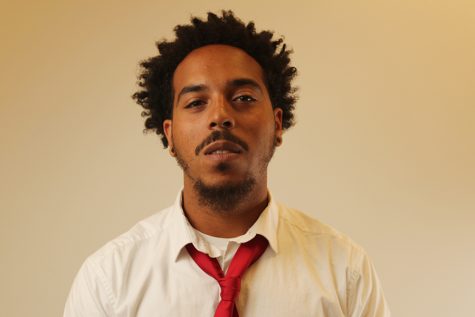Negotiations yield United Faculty salary increases, medical benefits
Oct 11, 2017
A tentative agreement addressing faculty grievances was reached between the Contra Costa Community College District and the United Faculty union during negotiations held on Sept. 8 and 15.
Salary increases, Medicare coordinated medical plans for retirees, family and parental leave options and a one-year extension of the districtwide “Equity Hour Program” were some of the details agreed upon during the two full days of negotiations.
The tentative agreement will be embraced for all contracts during the 2017-18, 2018-19 and 2019-20 academic semesters.
United Faculty Vice President Jeffrey Michels participated in the negotiations on behalf of the faculty’s union. He said the salary for full-time faculty will increase by 2 percent retroactive to the start of the 2017 fall semester, while part-time faculty salaries will increase based on their teaching assignments and the workload value carried by it.
Workloads also increased with the agreement.
According to the agreement, Part-time Load Adjustment Factors have increased as follows: lab assignments: from 2 to 3 percent; lecture assignments: from 14.8 to 19.1 percent; and English Composition assignments: from 14.8 to 20 percent.
Contra Costa College English professor Brooke Eubanks said the salary increase will help boost the morale of staff members. It will also help them maintain a decent lifestyle in the Bay Area where the price on the basic essentials is on a steady rise.
“The cost of living is increasing and professors aren’t immune to it,” Eubanks said. “In this climate, any increase helps.”
The agreement will provide part-time coaches with a 25 percent salary increase, in addition to increasing the load for coaching assignments from 44 to 55 percent beginning spring 2018.
“Our coaches were ridiculously underpaid compared to the schools we compete against in the area,” Michels said. “We finally fixed that.”
United Faculty Vice President Jason Mayfield said that although the constant process of negotiating between the two parties will continue, he feels this tentative agreement had a positive outcome for both sides.
Michels, who’s also an English professor at Contra Costa College, said the district has a long history of not paying teachers the “top salary” compared to other districts in the Bay Area and competition is a major issue for them.
He believes this agreement will help the district become more appealing for teachers looking for employment.
Mayfield, who also played a role on the union’s negotiating team, said his side worked with the district to get resources and compensation for faculty members who’s been without them until now.
The parties also agreed to extend the previously piloted Catastrophic Family Leave program which acts as an emergency fund for staff members in need of extra leave days who have already exhausted their paid family leave and personal necessity leave options.
Michels said in its two years of being active, the program has helped relieve the anxiety of faculty members who needed to stay out longer than what their typical leave allows due to personal reasons.
The fund is also used as to reimburse faculty members who spend more than $5,000 in a year on medical co-payments, Michels said.
Also detailed in the agreement was the baby bonding leave program mandated by Assembly Bill 2393 that allows employees to use up to 12 weeks of sick leave to bond with their newborn child.
Eubanks said coming from Arizona, a “red state” where professors carrying a workload of 7 or 8 classes isn’t uncommon and unions aren’t supported, being in a teacher’s union that works so efficiently with its district is astonishing.
Mayfield said the outcome of the tentative agreement will likely gain the approval of the district’s faculty.
The UF is currently holding a ratification vote on the agreement. If ratified by district faculty, the tentative agreement will go before the district Governing Board for final approval at its November meeting.


